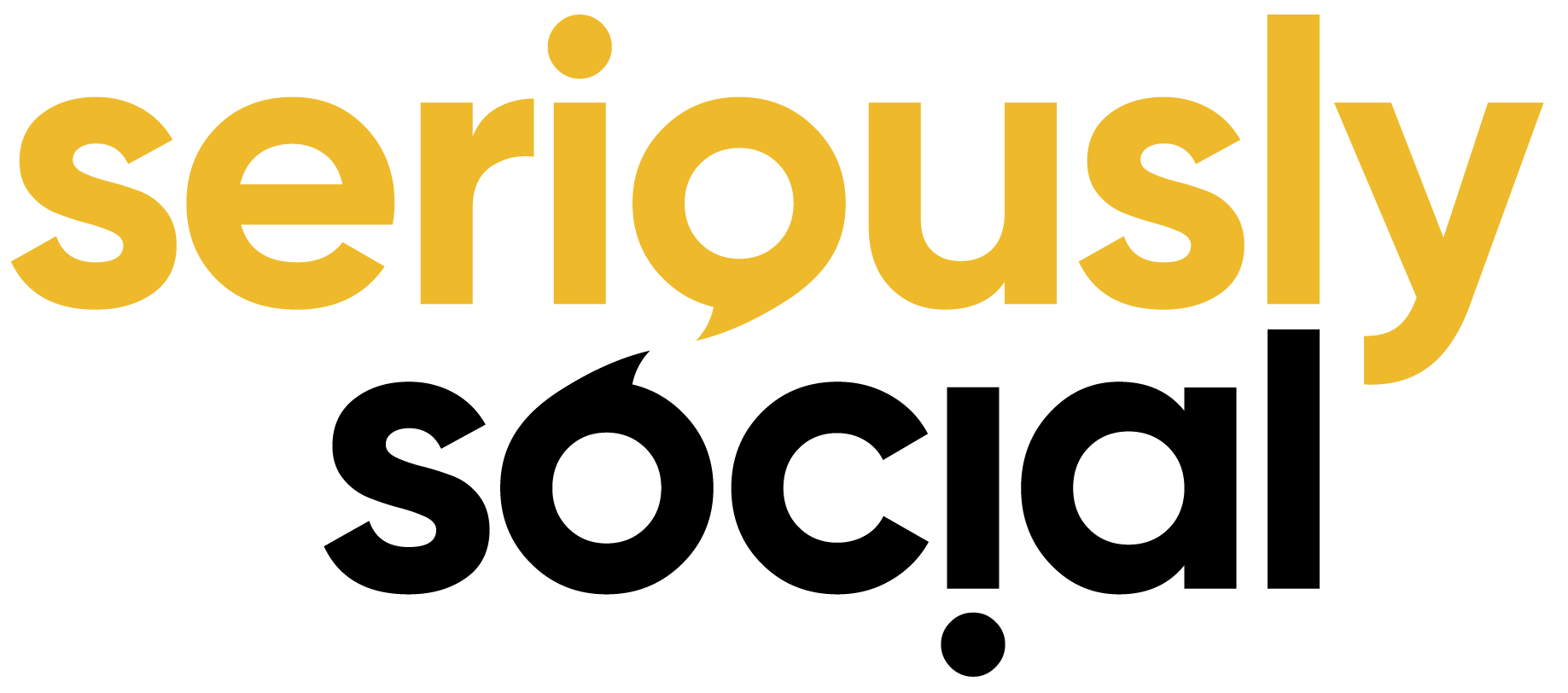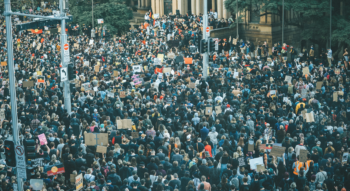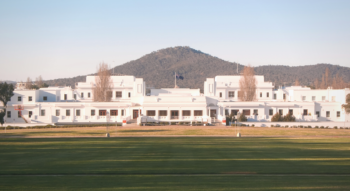Episode Notes
Australians love sport. It’s healthy, fun and brings the community together for a common goal. Or so we’re told. But what happens when our national obsession with sport causes division in the community? And who is left out of the game altogether? In this episode of Seriously Social, Emeritus Professor David Rowe explains how involvement in sport can be so contentious it has started an actual war while author and host of The Outer Sanctum podcast, Nicole Hayes, discusses the benefits to the wider community that occur when marginalised voices enter the conversation about sport.
Transcript
Nicole Hayes (00:02):
It is very family focused. The crowd of an AFLW match is so vastly different to an AFLM game.
Ginger Gorman (00:11):
Nicole Hayes is an author. And a few years ago, she and a couple of other women, all keen AFL fans, started a podcast called The Outer Sanctum.
Nicole Hayes (00:23):
It was very on the spot and very unplanned. There was wine and it started as a friendship group that came out of the first novel I wrote, which was about a teenage girl obsessed with football, and just her inability to safely navigate an AFL space in the 1980s of Melbourne. And aspects of it were based on my own experience. We got talking and we just established an online friendship group, really.
Ginger Gorman (00:54):
The group was often frustrated by who got to talk about the big issues in sport. The stuff that had the potential to make the game unite people or drive a wedge between different groups.
Nicole Hayes (01:07):
We continue to be frustrated by conversations that the football media are having about women, people of color, Indigenous footballers, sporting families or the partners of players, and how no one with those lived experiences were included in that conversation, and it was really frustrating to us. One thing we thought we could do is start talking about it, and basically a bottle of wine and a very nice meal later, we did our first show.
Ginger Gorman (01:39):
The rest, as they say, is history. That was 2016 and the following year the AFL launched a national women’s comp, the AFLW.
Nicole Hayes (01:49):
It is children driven. It is diverse, it is safe, it is carnival like. It’s fun. It doesn’t feel fraught like the men’s game can sometimes feel, and that’s something that’s natural and organic. You can’t force that. That’s happened because of the community, the players themselves, their own stories, but also just the way that it has come from the groundswell. It wasn’t a thing that was imposed on the people, it was driven by the people. And when we’re allowed to celebrate women’s sport, allowed to participate on that level, it’s amazing what we can do and how different it can be. I just see them as different sports in some ways. They’re both football but they’re different kinds of football, and I’m completely okay with that because I do think the women’s game and the audiences, the crowd, the community offers something sometimes that I find better and more satisfying, to be honest, than the men’s.
Ginger Gorman (02:49):
What is it about sport? It can be both wholesome and invigorating. It can give kids the confidence to do so much more than just kick a ball. And it can bring together people whose nations have been in literal wars against each other for decades. Sport is a powerful unifier, except when it isn’t. This is Seriously Social. I’m Ginger Gorman. And well, this is a social science podcast, not a sport podcast. So, when we look at the great ways that sport brings us together, we can’t help but weigh them against the ways that it divides us.
Emeritus Professor David Rowe (03:28):
When I think about my own relationship to sport as something of a player, of not great distinction, but at times, bit older, but as a spectator.
Ginger Gorman (03:53):
Professor David Rowe is a prolific writer on sports, media, popular culture and the politics of sport. He’s an emeritus professor of the Institute for Culture and Society, Western Sydney University and a Fellow of the Academy of the Social Sciences in Australia.
Emeritus Professor David Rowe (04:09):
I’m from the West Country of England and was taken to my local football club, Plymouth Argyle, by my dad when I was about five. Now, this is a club that’s existed since 1886. It’s never won anything of any great distinction, but I carry a torch for it. Today, when I go back and I relive my childhood sometimes, going to the stadium. And that’s where I get a sense of place, a sense of a particular kind of community.
Ginger Gorman (04:40):
It’s an amazing experience, one that I know well, firsthand from going to AFL games in Melbourne. But sport can also be divisive. And I’m not just talking about fans of opposing teams. I’m talking about people from opposing cultures or regimes. Sport can get really, really political.
Emeritus Professor David Rowe (05:01):
Sport is a vehicle for say, sectarianism around religion. For example, if you go…I don’t know if you’ve ever been to a Glasgow Celtic versus Glasgow Rangers. There you can see the strong vestiges of sectarianism, Catholic versus Protestant, Irish Catholics versus Scottish Protestants, and so on. People like to talk about the famous 1969 soccer war or football war between Honduras and San Salvador… El Salvador, sorry, which happened after a World Cup qualifier. It was actually provoked. It was the catalyst for an actual 100-day war.
Ginger Gorman (05:40):
Thankfully, Australian sport isn’t quite so political, although it definitely has been a vehicle for political statements. Take the reaction to Cathy Freeman’s victory lap at the 2000 Olympics. After she won gold in the 400 metres, she carried both the Australian and Aboriginal flags through the stadium. It was a symbol of reconciliation, progress and pride, but yet some still saw it as an insult. Nevertheless, Australia is often described as a great sporting nation or a nation of sports lovers. Our prime ministers love the cricket and the footy. Victorians get a public holiday for the AFL Grand Final, and another one for the Melbourne Cup. Our love of a sport unites us. Every single Australian is sports mad….aren’t we?
Emeritus Professor David Rowe (06:33):
It is a strong mythology and it’s so strong that if you want to become an Australian citizen, you get a document to enable you to bone up on what life is like in Australia, and it’s called Australia’s Common Bond. And it tells you that Australia is a nation of good sports. So, officially the Australian government says it, Department of Foreign Affairs and Trade says it in its documentation. There’s this idea that there’s something almost uniquely Australian about an attachment to sport. That everybody loves it, everybody plays it. When the Australian national team is playing, everybody supports that team. Everyone has a local team that they support and they support sport across many areas.
Ginger Gorman (07:28):
This is a really problematic idea, in a way. The idea that sport creates us as a community. In your work, what do you believe about the idea of community when it comes to sport or what do you understand?
Emeritus Professor David Rowe (07:44):
Yeah. I mean, I’m always very skeptical about the term community as a singular noun, because we are members of many communities, and they don’t all fit neatly in with each other, often they’re in conflict. So, I don’t see sport as a community to which we all must be members of. I think that is oppressive. I think at its best it can be a community resource, it can be a lot of fun. It brings people together in various ways. It can also divide them in various ways. So, I think that it’s not compulsory to like sport or participate in sport in Australia, even though it seems like that some of the time.
What I would say is that sport is a social and cultural resource, which, if used properly, can enhance life. But if you don’t like sport and it doesn’t mean anything to you, or you get sick to death of it dominating the media, the news media at particular times, such as when there’s Olympic games or something, then you have every right to do so, and you also have the right to be critical of it, rather than just accept it as a package, and one is not allowed to criticise this sacred institution.
Ginger Gorman (09:03):
Well, heaps of Aussies love watching sport on telly, going to a match, keeping up with news about results, and players, and clubs, and codes. When it comes to participation, we are much more likely to go to the gym than join a local touch or netball team.
Emeritus Professor David Rowe (09:19):
Most Australian adults are not regularly active in sport. If you’re talking about regular sport participation that is organised sport in Australia amongst adults, it’s about a fifth of the population. It’s roughly one in five, so it’s not huge. More men than women. There is those who will go along to a stadium and actually pay to watch it. About half of the population, around 50% of adults, because we only surveyed adults. But approaching 90% experience support through the media, specifically television.
Ginger Gorman (09:55):
So, as adults, even if we played club sports as kids, we are not likely to keep it up in an official way. But what about those of us who throw a Frisbee at the park with friends or join a local running group or a spin class? We’re being active, we’re part of a community, is that sport?
Emeritus Professor David Rowe (10:14):
This is why a lot of what you hear about sport and physical activity in Australia, the stats are often very unreliable, because I make the distinction between sport as rationalised, physical play with rules and so on, and clubs and associations, and all that. And that’s really only a minor part of the total physical culture. Pick-up games of sports, where people just assemble at a park and have a bit of a kick around or play basketball, you might recall kind of started out in the YMCAs of North America and in the streets, of the street game. But in the end, they become sportified. This is a concept which is used in sociology that a physical cultural practice, we would say a ritual, a folk, some folk play like football becomes in modernity, industrialism, capitalism, urbanisation, and so on.
Then, that creates this institution called sport, which is regular and regulated, and then it has this marriage made in heaven with the media, whereupon they become codependent because you don’t therefore have to play or physically go to a stadium to be part of the sport experience. And they both make a lot of money off each other and get a lot of attention out of it. And there you go, that’s where we’ve ended up in the 21st century.
Ginger Gorman (11:54):
David says it’s almost impossible to conceive of sport today without thinking about the media. Why is that? David says it’s infiltrating every part of our culture and society.
Emeritus Professor David Rowe (12:07):
Even, really, for just looking at kids playing sport in the park, you notice that they’re picking up gestures. Where do they get those gestures from, those movements? Sometimes, where do they get that language from? Oh, hello, that was from the media. Even at that grassroots level, the media’s important. But, of course, the dominant economic force in sport is the media. It’s the largest source of revenue for most professional sports. And some of us, we use these synthetic concepts. A colleague of mine, United States, Lawrence, went and coined the term “mediasport,” all one word. I tried to patent into a concept I call the “media sports cultural complex,” which reveals how sport insinuates itself into virtually all areas of social and cultural life. It’s unavoidable, as many people who don’t like sport will tell you. And that influence of sport, the media’s influence on sport, which we also, we love to jargon terms like mediatisation.
It is actually in representing a form of culture and society in the media, you’re changing it at the same time, and you are changing, also, the wider culture. And I’ll just give one other example for people. If you think what’s keeping free to air television alive at the moment, it’s live sport. It’s television and current affairs and it’s competitive reality television shows, which are sport-like. In other words reality shows are imitating sport. They have outcome uncertainty, they have liveness, they have characters, good, bad, evil, noble. All those features. In some way you could say that sport in the media has infiltrated other areas of the media, as well as the wider society.
Ginger Gorman (14:09):
He mentioned earlier that sport and the media have a match made in heaven, but David believes it’s a troubled marriage.
Emeritus Professor David Rowe (14:18):
There’s something obviously in it for both of them. Largely, huge amounts of capital and attention. But it is troubling and it’s hard to imagine that, but there was a time when there was quite a lot of mutual suspicion about sport and television. It was mutual. That is that sport quite legitimately was worried that if people are slobbing around at home, they’re not going to get off their butts and go and pay at the stadium. Well, we’ve seen it, especially around the pandemic, when sports events were canceled or were played without crowds. So, you had media companies saying, “Well, look, why are we paying all this money?” A huge amount of money in broadcast rights. The AFL’s just got $4.5 billion for a seven-year deal, including might I say, a contra, non-money side to it.
But, “why are we paying all this money for this content that may not pan out in the way that we hope?” While sports might be saying, “Well, hang on, we’ve got this paymaster television, but it’s making all these demands. When we play, how we play. We can’t have those endless grand slam matches that go on for five hours and so on.” “Let’s bring in tie breaks, put in ad breaks in basketball games. Let’s try and speed things up. Let’s get in the faces of sports people, so we can get the reality experience.”
Ginger Gorman (15:56):
The media attention and the commercialization of sport comes with great scrutiny. Some fans will still blindly defend their team or their code through any controversy and there are always controversies, but others like Nicole Hayes really grapple with the issues that put sport on the front page of the paper instead of at the back. Issues like homophobia, racism, and sexism.
Nicole Hayes (16:23):
I am in a constant state of flux where it’s concerned one minute I’m heartened, and the next I’m really disappointed. And it can feel impossible sometimes because these very big revelations expose what you believe to be an improved situation, and expose it for something quite different. I think, again, not doing the Pollyanna, but just finding a way through what we should be heartened by and be able to recognize as positive, is the fact that these issues are exposed at all, whereas once they weren’t. And secondly, that the response is often quite swift now. Instead of months and months of, “Is it racist? Is it sexist? I don’t think it is.” You just have to go back to the Adam Goodes situation to only 2014… I think it was 2013, 14, to see how far we’ve come in that time where the response is quite swift.
The organisations do not want to be attached to that label. And even if it is a PR exercise, in the end it does drive change. And not having to waste the energy to convince them it’s wrong is something of value. It means that the energy can be spent by those people agitating for change to improve the situation, to expand and to consider it. Is this a situation that’s a one-off or is this systemic? And then, to take broader approaches to then ask the question, “Is this a situation? Is this occurring just in one club or is this just occurring in one year, or do we need to go wider? Do we need to look harder?” So, I find that encouraging. And it’s also vastly different to how it was only a few years ago. But sport is a microcosm of society, and it is in some ways a very unique and specialised one, but it’s also quite emblematic of a greater society, as well. So, with the good comes the bad, and nothing is sort of foolproof, I don’t think.
Ginger Gorman (18:37):
What impact do you think female sports commentators and reporters have had?
Nicole Hayes (18:43):
I think it’s forced the rest of the more established mainstream media to think about how they conduct themselves publicly, how they respond to some of these issues. The defensiveness when there were concerns about sexism or allegations about racism, those sorts of things. It wasn’t that long ago that the instinct was to be defensive and to, “Nothing to see here.” Whereas I do think by diversifying, inevitably there are people who have been at the wrong end of those situations. And we’re better at identifying it and we’re better at talking about it. And it forces the rest of the power brokers, the people who have been there a long time to be a bit more mindful in how they approach these conversations. So, I genuinely believe it’s changed the landscape of how we talk about sport. I know that there have been missteps and there have been embarrassments, but once again, the reaction to those embarrassments and those missteps has been quite swift.
Ginger Gorman (19:51):
Scandals are another way that sport can unite or divide fans. And let’s face it, fans are a powerful collective, whichever side they come down on. Here’s Professor David Rowe, again.
Emeritus Professor David Rowe (20:04):
I think that fans do have an ethical responsibility to intervene in sport where things are going on in the name of sport, sometimes in their names as fans. And in fact, I would argue that in many places, many sports, in many countries, progressive innovations have actually come from the fans, not from the sports. As I say, because sport is so image conscious, it’s about public relations, it’s about good rep and that kind of thing, covering things up. It’s often been fan groups who’ve said, “Look, we’re not going to put up with racism.” The Kick It Out movement, for example, in football came from fans, really, rather than football clubs. And you could say exactly the same about homophobia and all kinds of other areas, where active fan groups took an ethical stance because of the vacuum that was created in many sports organisations.
Ginger Gorman (21:10):
David is a skeptic and I’ll be honest, so am I. But I’ve definitely seen sport unite people in beautiful ways.
I went to a Reclink match the other day, and for those people who don’t know, this is where musicians play the journalists, and the idea is to raise money for very wonderful programs in public housing. And now, these games are chaos, David. Lots of people have never played AFL before, and there’s sausages and there’s bands, and it was just the most wonderful, hilarious feeling. The community feel there was absolutely beautiful, and it made me wonder, is the commercialisation of sport and this very distasteful, in a lot of cases, relationship that it has with the media, and with big business pushing people back into community sport and back towards perhaps a more wholesome idea of community and sport?
Emeritus Professor David Rowe (22:15):
And sport isn’t necessarily the centre of that, it’s just a means to an end.
Ginger Gorman (22:21):
Thanks for listening to Seriously Social. I’m Ginger Goman. The podcast is produced by Kim Lester, engineered by Mark Gargoldonk. And this episode was executive produced by Bonnie Johnson and Clare McHugh. It’s an initiative of the Academy of the Social Sciences in Australia. Seriously Social is produced on Ngunnawal, Turrbal and Yaggera country and we want to pay our respects to elders past and present. Now, to a podcast we’d love to recommend.
The We Society Podcast hosted by the author and journalist Will Hutton, and brought to you by the UK Academy of Social Sciences. As the institutions and structures that have underpinned Britain and the world quiver before unprecedented pressures, Will explores with a unique range of experts the roots of what is going on, and how best we can together respond. The topical issues in the second series range from Russia’s invasion of the Ukraine, with Sir Lawrence Freedman, to how a stressed NHS can sustain Britain’s health, with Professor Linda Bauld. This is a must listen for all of us trying to get to grips with the magnitude of today’s challenges, concerned about our society, and looking for insight and hope. You can listen to the We Society now, wherever you get your podcasts.
Useful Links
- Honduras vs El Salvador: The football match that kicked off a war BBC News
- The day Cathy Freeman flew the flag and flagged the future The Sydney Morning Herald
- Australian Citizenship: Our common bond Department of Home Affairs
- Kick It Out
- Reclink





